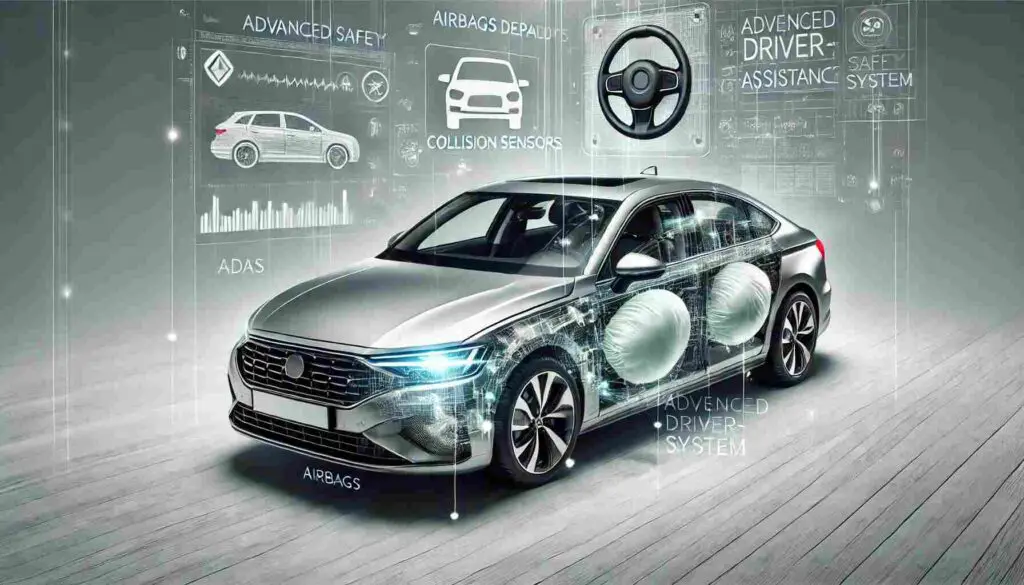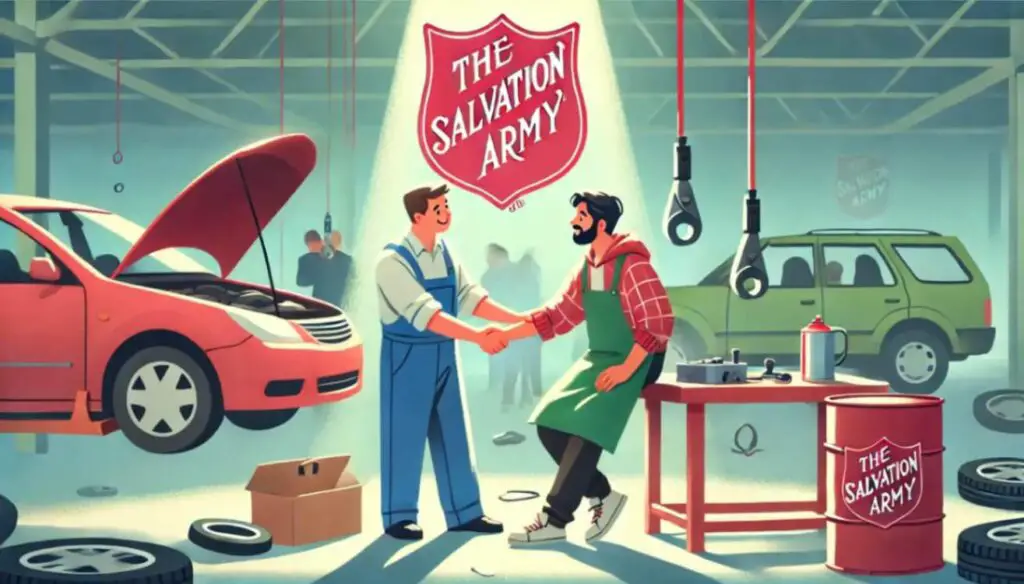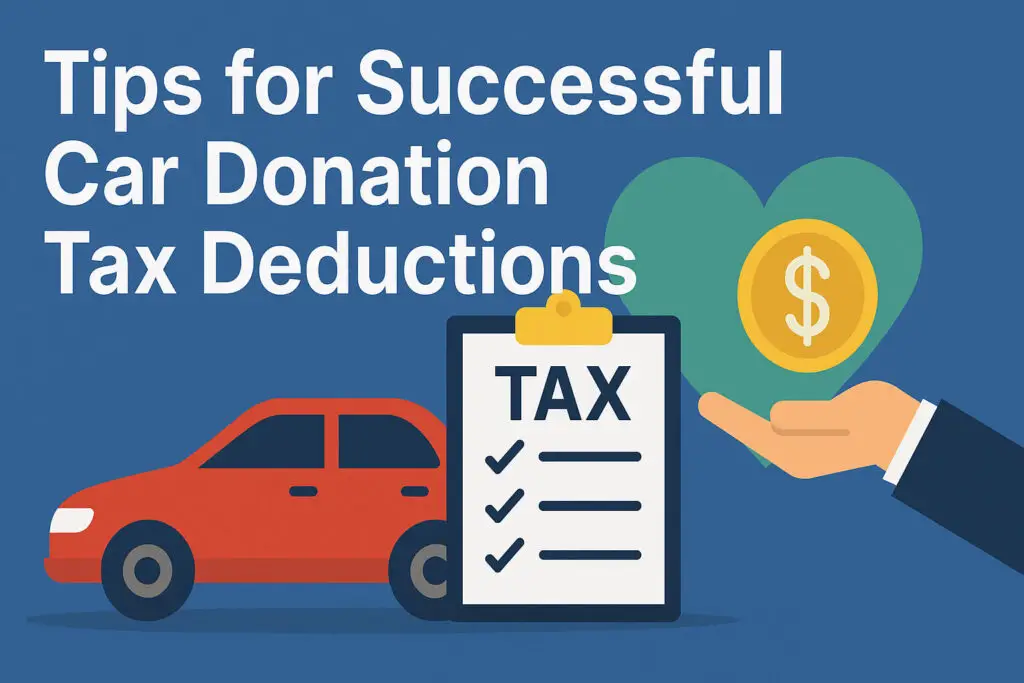In today’s digital age, where information is just a click away, understanding how to access government free car programs in St. Louis, Missouri, can be life-changing for individuals facing transportation challenges. This article is your comprehensive guide to navigating government free car programs in St. Louis and accessing the assistance you need.
Introduction
When it comes to finding reliable transportation in St. Louis, Missouri, it’s essential to dispel any misconceptions about government free car programs. While there are no government programs in St. Louis or Missouri that offer free cars to residents outright, there are valuable resources and assistance programs available to help you secure the transportation you need, depending on your specific situation.
Apply For Car Assistance Programs
1. SVDP Automobile Program
The SVDP (Society of St. Vincent de Paul) Automobile Program is a lifeline for individuals in St. Louis who are in desperate need of a car for essential purposes. This program primarily aims to assist those facing challenges related to employment, medical appointments, and other vital needs.
Qualification Requirements
To qualify for the SVDP Automobile Program, you must meet specific criteria:
- Valid Driver’s License: You should possess a valid driver’s license, ensuring that you are legally allowed to operate a vehicle. This requirement is fundamental, as it ensures that recipients have the necessary skills to drive safely.
- Insurance: You must have insurance coverage for the vehicle. This is crucial to protect both you and others on the road in case of accidents or unforeseen events.
- Documented Need: Applicants are required to provide documented proof of their need for a vehicle. This documentation could include:
- Verification of employment or job interviews that necessitate reliable transportation.
- Medical records or appointment schedules indicating the need for transportation to medical facilities.
- Any other essential needs that require a car, backed by verifiable documentation.
Contact Information
For individuals seeking more information or wishing to inquire further about the SVDP Automobile Program, you can contact them at 314-881-6000. They will provide you with detailed information about the program’s application process, eligibility requirements, and any additional support they can offer.
2. Missouri Rides
Missouri Rides is an invaluable resource, primarily focused on assisting individuals with disabilities and older adults in Missouri who face challenges in driving themselves. The organization’s mission is to provide transportation services that promote and maintain independence and mobility for those in need.
Eligibility Determination
To access the services provided by Missouri Rides, individuals must undergo an eligibility determination process. This process aims to ensure that the assistance is directed towards those who genuinely require it. Some factors that may be considered during eligibility assessment include:
- Disabilities: Missouri Rides is particularly geared towards individuals with disabilities. Eligibility criteria may include the type and severity of disabilities, as well as how they affect an individual’s ability to drive or use public transportation.
- Age: Older adults who may face mobility challenges due to age-related issues may also be eligible for the program. Specific age thresholds or considerations may apply.
Contact Information
For those interested in Missouri Rides’ services and seeking information about eligibility and support, you can reach out to them at 636-359-4656. Contacting them directly will allow you to get personalized information and guidance on how their transportation services can meet your specific needs.
In summary, both the SVDP Automobile Program and Missouri Rides are valuable resources in St. Louis, Missouri, providing essential transportation assistance to individuals facing various challenges. Understanding their qualification requirements and contacting them directly for more information is the first step towards accessing the support you may need.
Alternative Transportation Options
Carpooling
Consider carpooling with colleagues, friends, or neighbors to share the cost of transportation. Carpooling not only saves money but also reduces the environmental impact of individual commuting.
Ride-Sharing Services
Apps like Uber and Lyft offer on-demand ride-hailing services, providing a convenient option for occasional trips or when public transportation is not readily available.
Biking and Walking
For those living close to their workplace or other destinations, biking or walking can be a sustainable and cost-effective transportation choice. It also offers health benefits by promoting exercise.
Understanding Government Free Car Programs
What Are Government Free Car Programs?
Government free car programs are initiatives designed to provide a lifeline to individuals who lack the financial means to purchase a vehicle. These programs recognize that reliable transportation is a fundamental necessity for individuals to access employment opportunities, attend essential medical appointments, and actively engage in their communities. To fulfill this mission, government free car programs typically involve the distribution of donated cars to eligible recipients.
Eligibility Criteria
To ensure that the assistance reaches those who genuinely need it, government free car programs implement specific eligibility criteria:
- Income Requirements: One of the primary eligibility factors revolves around income thresholds. Applicants must meet specific income guidelines set by program administrators. This criterion aims to identify individuals and families facing financial hardship and lacking the resources to purchase a vehicle independently.
- Age Restrictions: Some government free car programs target specific age groups, such as low-income senior citizens who may confront mobility challenges due to age-related factors. These age-based programs acknowledge the unique needs of older adults.
- Disability Considerations: Recognizing the particular challenges faced by individuals with disabilities, government free car programs often have special provisions in place to cater to their unique needs. Disabilities can significantly impact an individual’s ability to use public transportation effectively, making access to a personal vehicle even more crucial.
Why Do Governments Offer Free Cars?
The provision of free cars by governments is rooted in their commitment to social welfare and poverty alleviation. Here are the primary reasons behind governments offering free cars:
- Promoting Self-Sufficiency: Governments aim to empower individuals and families to become self-sufficient. Access to reliable transportation enables recipients to seek and maintain employment, reducing their reliance on public assistance programs.
- Healthcare Access: Free cars facilitate access to essential medical services. Recipients can attend doctor’s appointments, receive necessary treatments, and improve their overall health and well-being.
- Community Engagement: Reliable transportation fosters community engagement. Individuals with access to free cars can participate in local activities, attend community events, and engage in civic life, thereby enhancing their sense of belonging.
- Economic Impact: By helping individuals secure employment, government free car programs contribute to economic growth and stability. Employed individuals contribute to the local economy through spending and taxation, benefiting the community as a whole.
Dispelling Myths and Misconceptions
Misinformation about government free car programs can lead to misconceptions and deter eligible individuals from seeking assistance. It’s crucial to debunk common myths associated with these programs:
- Complexity: Some may believe that government free car programs are overly complex and challenging to navigate. In reality, many programs have streamlined application processes to make access as straightforward as possible.
- Maintenance Costs: There is a misconception that recipients are burdened with high maintenance costs for their donated cars. In truth, many programs cover maintenance expenses for a specified period, ensuring that recipients can use their cars without facing undue financial strain.
In conclusion, government free car programs are essential initiatives that provide reliable transportation to those in need, with a primary focus on improving recipients’ quality of life, promoting self-sufficiency, and reducing their reliance on public assistance. Understanding the eligibility criteria and the reasons behind governments’ commitment to offering free cars can help individuals access these valuable resources and regain their independence.
Government Free Car Programs in St. Louis
Empowering Journeys: Discover Free Car Assistance Programs
- Virginia’s Path to Mobility: Government Free Cars in Virginia – A Comprehensive Guide
- Faith and Wheels: Navigating the Possibility of Free Cars for Pastors – Key Insights
- Georgia’s Road to Empowerment: Free Car Programs for Low-Income Families – An In-Depth Exploration
- Nebraska’s Helping Hand: Exploring Assistance Programs for Free Cars – A Detailed Overview
- Erie County’s Lifeline: Securing Government Assistance for a Free Car – Your Essential Guide
Steps to Get a Government Free Car in St. Louis
Other Transportation Assistance Programs
Public Transportation Options in St. Louis
St. Louis boasts an extensive public transportation network, offering a variety of affordable and accessible options for residents and visitors. This network includes:
- MetroLink: St. Louis’s light rail system, MetroLink, serves the city and its surrounding areas, providing a convenient and cost-effective mode of transportation. Passengers can purchase tickets or passes for their daily commuting needs.
- Bus System: Both St. Louis City and St. Louis County feature extensive bus systems that offer reliable and affordable public transportation services throughout the region. The relatively low fares make the bus system an attractive choice for those seeking cost-effective transportation solutions.
- Accessibility: Public transportation services in St. Louis are designed to be accessible to individuals with disabilities, featuring features such as ramps and designated seating areas. This accessibility ensures that a wide range of individuals can utilize these services comfortably.
Carpooling and Ride-Sharing Services
In addition to traditional public transportation, residents of St. Louis can explore carpooling and ride-sharing services as convenient alternatives to owning a personal vehicle. Here are some key points to consider:
- Carpooling: Carpooling involves sharing rides with colleagues, friends, or neighbors. It’s an excellent way to reduce transportation costs and minimize the environmental impact of individual commutes. Many carpooling arrangements also include cost-sharing to further reduce expenses.
- Ride-Sharing Services: Apps like Uber and Lyft offer on-demand ride-hailing services in St. Louis. These services are a convenient option for occasional trips, offering flexibility in terms of pick-up and drop-off locations. Users can request rides through mobile apps and pay electronically.
Community-Based Transportation Services
St. Louis is home to various community organizations that provide transportation services tailored to specific groups. Some of these services include:
- Seniors: Community organizations often offer transportation assistance to senior citizens who may face mobility challenges due to age-related factors. These services ensure that older adults can access essential services and maintain their independence.
- Individuals with Disabilities: Transportation services for individuals with disabilities may include wheelchair-accessible vehicles and accommodations for mobility-impaired individuals. These services are crucial for ensuring that everyone in the community can access transportation resources.
Non-Profit Organizations Offering Transportation Assistance
Beyond government programs, numerous non-profit organizations in St. Louis are dedicated to offering transportation assistance. These organizations play a vital role in ensuring that individuals have a variety of options for reliable and accessible transportation. They may offer services such as:
- Transportation Vouchers: Some non-profit organizations provide transportation vouchers or subsidies to individuals in need, allowing them to access transportation services more affordably.
- Transportation Coordination: Non-profits may assist individuals in coordinating transportation for specific purposes, such as medical appointments, job interviews, or educational activities.
These non-profit organizations complement government efforts to provide transportation assistance, ensuring that a broad spectrum of individuals in St. Louis can access the transportation they need to lead fulfilling lives.
In conclusion, St. Louis offers a diverse range of transportation assistance programs and options, including extensive public transportation, carpooling and ride-sharing services, community-based transportation, and the support of non-profit organizations. These resources collectively contribute to enhancing mobility and accessibility for residents across the city.
Frequently Asked Questions (FAQs)
Who Is Eligible for Government Free Cars in St. Louis?
Eligibility criteria for government free car programs in St. Louis typically include:
- Income Thresholds: Applicants must meet specific income guidelines set by program administrators. These guidelines ensure that the assistance reaches individuals and families facing financial hardship.
- Age Requirements: Some programs may have age-related criteria, targeting specific age groups, such as low-income senior citizens who may encounter mobility challenges due to their age.
- Disability Considerations: Many programs take into account individuals with disabilities, offering special provisions to cater to their unique transportation needs.
What Documentation Is Required for the Application?
To apply for a government free car in St. Louis, applicants generally need to provide the following documentation:
- Income Verification: Applicants must submit documentation to verify that their income falls within the income thresholds specified by the program. This may include pay stubs, tax returns, or other income-related documents.
- Identification: Valid identification documents, such as a driver’s license or state ID, are often required to confirm the applicant’s identity.
- Proof of Disability: If disability is a criterion for eligibility, applicants must provide documentation that verifies their disability status. This documentation may include medical records or disability certificates.
How Long Does the Application Process Typically Take?
The processing times for government free car programs can vary depending on the program’s specific policies and the volume of applications received. Applicants should be prepared for potential waiting periods while their applications are reviewed and assessed. It’s advisable to follow up on the application’s status as needed to stay informed about the progress.
Can I Apply for More Than One Government Assistance Program?
In many cases, individuals in St. Louis can apply for multiple government assistance programs to address their various needs. These programs may include housing assistance, food assistance, healthcare assistance, and transportation assistance, among others. Applying for multiple programs can help individuals access comprehensive support to improve their quality of life.
What Are the Responsibilities of Car Recipients?
Car recipients are typically responsible for maintaining the vehicle provided to them. While the specifics may vary by program, recipients are expected to adhere to program guidelines and ensure that the vehicle remains in good working condition. This may include routine maintenance and following any usage restrictions or guidelines set by the program.
What If I Don’t Qualify for a Free Car?
If you don’t meet the eligibility criteria for a free car through government programs, you still have other transportation assistance options available in St. Louis. Consider exploring public transportation, carpooling, ride-sharing services, or reaching out to non-profit organizations that offer transportation assistance beyond government programs.
Are There Income Limits for Other Transportation Assistance Programs?
Income limits may vary for different transportation assistance programs in St. Louis. It’s essential to research each program’s specific requirements to determine whether you qualify based on your income level. Some programs may have higher or lower income thresholds, depending on their focus and available resources.
How Can I Donate My Old Car to Help Others?
If you have a vehicle that you no longer need and wish to help others, consider donating it to organizations that support individuals in need of reliable transportation. Many charitable organizations and non-profits accept vehicle donations to assist those facing transportation challenges, contributing to the community’s well-being and mobility.
Success Stories
Success Story 1: Emma’s Journey to Employment
Emma, a single mother of two, faced significant transportation challenges in St. Louis. She relied on public transportation to get to work and take her children to school and daycare. The limited bus schedules often caused her to arrive late at her job, putting her employment at risk.
One day, Emma learned about the government free car program and decided to apply. After meeting the eligibility criteria and submitting her application, she was approved for a donated car. This turned out to be a turning point in her life.
Having access to a reliable vehicle allowed Emma to secure a new job with better working hours, enabling her to spend more time with her children. She no longer had to worry about missing the last bus or rushing to pick up her kids. Emma’s newfound mobility improved her quality of life and provided stability for her family.
Success Story 2: James’s Pursuit of Higher Education
James, a high school graduate, aspired to attend college in St. Louis to pursue his dream of becoming an engineer. However, he faced a significant hurdle – he lacked reliable transportation to commute to the university.
James discovered the government free car program and decided to apply. After meeting the eligibility criteria and providing the required documentation, he was approved for a free car. This opened up a world of opportunities for him.
With his own vehicle, James could attend college classes regularly and participate in extracurricular activities. His improved mobility allowed him to excel academically and complete his engineering degree. The free car not only fulfilled his dream but also laid the foundation for a successful career in the field he was passionate about.
Success Story 3: Maria’s Journey to Independence
Maria, a retiree and St. Louis resident, faced mobility challenges due to age-related factors. She had always been an independent individual and was determined to maintain her freedom despite physical limitations.
Maria learned about the government free car program designed for senior citizens. After going through the application process and proving her eligibility, she received a donated vehicle.
Having her own car allowed Maria to continue running errands, visiting friends and family, and attending social events. It provided her with the freedom and independence she cherished, enabling her to maintain an active and fulfilling lifestyle.
These success stories underscore the transformative power of government free car programs. Access to reliable transportation not only changed the lives of these individuals but also empowered them to pursue their dreams, achieve stability, and maintain their independence. These stories serve as inspiring examples of the positive impact of such initiatives on mobility and quality of life in St. Louis.
Conclusion
In conclusion, while there are no free cars available directly from the government in St. Louis, Missouri, understanding the resources and assistance programs available is crucial for individuals facing transportation challenges. This comprehensive guide has explored the significance of government free car programs, eligibility criteria, and the steps to access these programs in St. Louis. By dispelling myths, providing information on alternative transportation options, and sharing success stories, we aim to empower individuals in need and encourage them to explore their options for improved mobility. Government assistance programs in St. Louis play a vital role in enhancing the lives of residents, and we are dedicated to providing valuable information to those who seek it.









